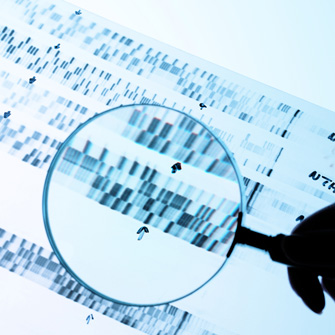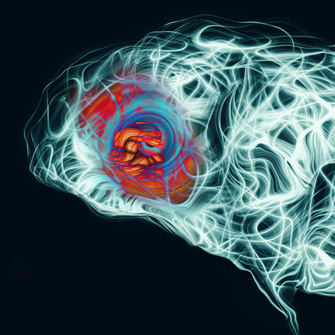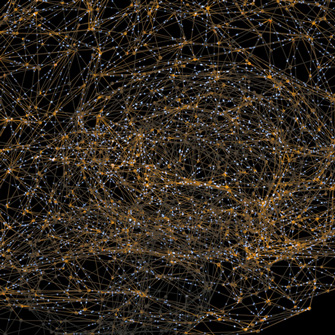Department of Bioinformatics
UT Southwestern Medical Center’s Department of Bioinformatics harnesses the power of computer science and applied mathematics to fuel research, discovery, and innovation in all areas of academic medicine.
Areas of Expertise

Artificial Intelligence

Machine Learning

Computer Vision

Genomics

Statistics

Software Engineering

Data Warehousing
Our Philosophy on Collaboration
Collaborations between the Department of Bioinformatics and the O’Donnell Brain Institute use innovations in data science to better understand the architecture of neuronal networks and patterns of communication – and to eventually map out the circuitry of the brain.
Bioinformatics specialists at UT Southwestern develop and apply tools for analyzing large amounts of complex biomedical data across a wide range of clinical and basic research disciplines. From microscopy to magnetic resonance imaging (MRI) to genomic studies, the models they develop help answer fundamental questions about biology, disease, and medicine.
Bioinformatics and neuroscience are both disciplines of pattern recognition. As neuroscientists learn more about brain function, their discoveries help informatics experts refine artificial intelligence (AI) and computer learning technology. In turn, brain research at the O’Donnell Brain Institute is powered by informatics technology and technique, and through services in the Department of Bioinformatics such as:
- The high-performance computing facility (BioHPC), which provides and maintains high-performance computing, storage, and file-sharing systems for basic science and clinical groups, allowing UT Southwestern researchers to work efficiently with complex analyses and large data sets.
- The bioinformatics core facility (BICF), which develops solutions for complex biomedical data processing projects and provides consultation, education, and collaboration to researchers across the university.
Training Highlights

- BioHPC offers intensive, hands-on training to UT Southwestern students, staff and faculty on basic high-performance computing techniques as well as specialized and advanced computing topics.
- BICF offers UT Southwestern students, staff, and faculty a series of nanocourses, which are two-day intensive training sessions on diverse topics in bioinformatics.
- The department co-leads the UT Southwestern computational and systems biology specialty curriculum, which allows any student pursuing a Ph.D. to learn how to use complex mathematical and computational concepts, methods, and algorithms.
- The department is co-launching a computational biology graduate program in 2023, which will raise the overall quality and competitiveness of data-rich research at UT Southwestern.





